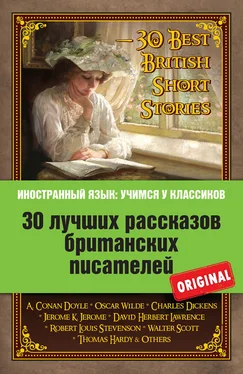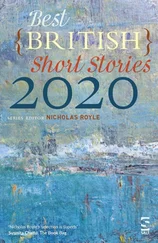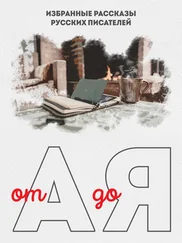aerolite– a stony meteorite
the Bristol Channel– an inlet of the Atlantic Ocean separating England from Wales
Charles Dickens
The Lamplighter
Pall Mall– a broad road in central London between Trafalgar Square and St. James Park
Madeira– a fortified wine, originally from the Portuguese island of Madeira
Venus– in Roman mythology, the goddess of love
Salamander– an amphibian, a small lizard-like animal; it was once supposed that salamanders could live in fire
Galileo Isaac Newton– the character of the story was christened after Galileo (1564–1642), a great Italian philosopher, astronomer and mathematician, and Isaac Newton (1642–1727), an English physicist and mathematician, one of the greatest figures of the scientific revolution of the 17th century
The Dancing Academy
Holborn-hill– Holborn is an area in central London west to the city
quadrille– a dance for four couples in square formation, popular in the 18th–19th centuries
minuet– an aristocratic couple dance of the 17th–18th centuries
gavotte– a lively kissing dance that came into fashion in England and France in the 17th–18th centuries
fandango– a Spanish courtship dance of Moorish origin, popular in Europe in the 17th century
farinagholkajingo– a dance and the corresponding word invented by the author
negus– a drink of hot sweetened wine, lemon juice, water, etc.
the Serpentine– a part of a large curved lake in Hyde Park used for boating in summer and skating in winter
Thomas Hardy
An Imaginative Woman
Wessex– one of the historical Anglo-Saxon kingdoms of medieval England
symbolist– a representative of symbolism, a literary and artistic movement of the late 19th and early 20th centuries; symbolists expressed their emotional experience through subtle symbolized language
decadent– a representative of decadence, a period of decline in literature and art at the end of the 19th and the beginning of the 20th centuries
Elizabethan fashion– fashion and style of the time of Elizabeth I (1533–1603), Queen of England
Bond Street– a street in central London famous for its expensive shops
The Grave by the Hand-post
Ivel, Casterbridge– fictional cities in Dorset invented by Thomas Hardy (1840–1928)
General Wellesley– Arthur Wellesley, 1st duke of Wellington (1769–1852), the commander-in-chief of the British Army during the Napoleonic Wars and later prime minister of Great Britain
coroner– an official who is to inquire into any death that seems unnatural
felo de se– suicide
Waterloo and the fall of Napoleon– the Battle of Waterloo was the final defeat of Napoleon
William Fryer Harvey
The Beast with Five Fingers
reredos– in church, an ornamental screen covering the wall at the back of the altar
Braille– a writing system used for the blind and consisting of a code of 63 characters, invented in 1824 by Louis Braille (1809–1852), a French educator who was blind himself
Naples– a city in southern Italy, founded in 600 BC
Grantham– a town in Lincolnshire in east-central England, first mentioned in 1086
Stamford– a town on the River Welland in Lincolnshire in east-central England
Wesleyan– belonging to the family of the Wesleys
San Diego– a port and city on the Pacific coast in southern California
William Hope Hodgson
The Voice in the Night
Newcastle– a city in the United States named for Newcastle upon Tyne in England
’ Frisco= San Francisco
Jerome K. Jerome
The Ghost of the Marchioness of Appleford
La-De-Das– pretentious people
Kensington Gardens– a park in central London to the west of Hyde Park
Capetown– a city and seaport in South Africa
as dead as a door-nail– idiom absolutely dead
David Herbert Lawrence
The Rocking-horse Winner
the Ascot– a horse race in Ascot, a most fashionable event that takes place annually in June
the Lincoln– an annual horse race in Lincolnshire
Hampshire– a historic county in south-central England, on the English Channel
Richmond Park– a park on the River Thames in central London
the Leger– Saint Leger, one of the three English Crown horse races; it is held annually in September in Doncaster, Yorkshire, since 1776
Sheridan Le Fanu
The Dead Sexton
vicar– in the Church of England, the priest in charge of a parish
George MacDonald
The Gray Wolf
the Orkney (islands)– a group of more than 70 islands in northern Scotland
the Shetland Islands– a group of about 100 islands in the north of Scotland
Richard Middleton
The Ghost-ship
Portsmouth– a city on Portsea Island in the historic county of Hampshire, a naval base and a resort
the Cockneys– here: native Londoners
the battle of Naseby– the battle between the Parliamentary Army under Oliver Cromwell and the royalists in June, 1645
Senlac– the place of the famous battle in which the English were defeated by the Normans under William the Conqueror in 1066
the Ganges– a great river in India, flowing from the Himalayas to the Bay of Bengal, the holy river in Hinduism
Reginald on Christmas Presents
Tottenham Court Road– a street in central London
Durham– a historic county in northeastern England, on the North Sea coast
Omar Khayyám(1048–1131) – a great Persian poet, mathematician, astronomer and philosopher
FitzGerald’s notes– Edward FitzGerald (1809–1883), English poet and writer, famous for his translations of Omar Khayyám’s poetry and notes on it
crème de menthe– mint liqueur ( French )
Reginald’s Christmas Revel
Durbar– in India, an imperial assembly to mark some state occasion
Lapland– an area in northern Europe, in Norway, Sweden and Finland, mainly within the Arctic Circle; it was named for the Lapp, or Sami, who inhabited the region for many centuries
Tyrian scarlet– a natural dye of dark-red colour widely used in antiquity
Kipling– Rudyard Kipling (1865–1936), an English writer, poet and novelist, the Nobel Prize winner in Literature in 1907
Tuscany– a region in west-central Italy
Darwin– Charles Darwin (1809–1882), an English naturalist, the author of the theory of evolution by natural selection
Читать дальше
Конец ознакомительного отрывка
Купить книгу












